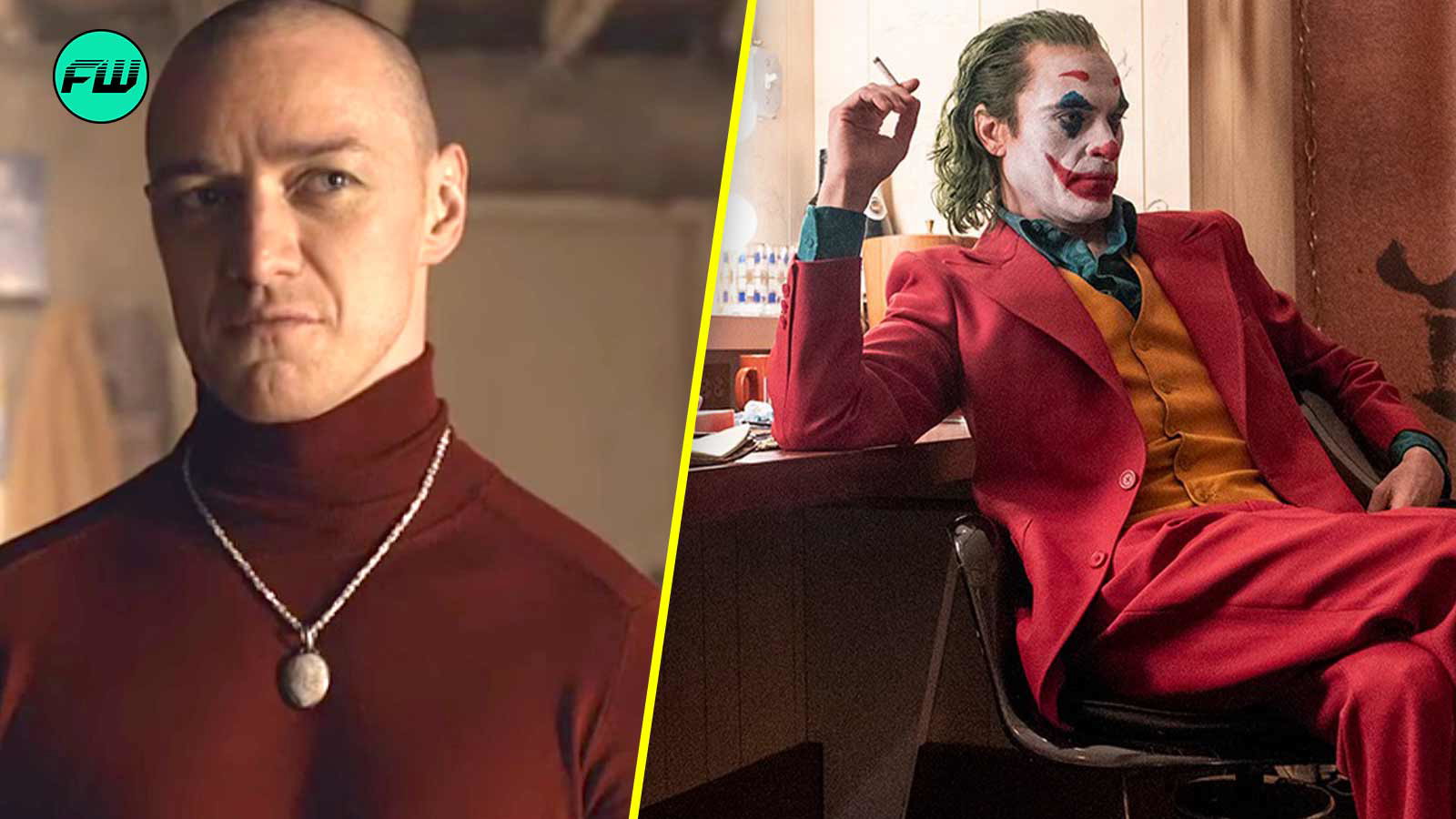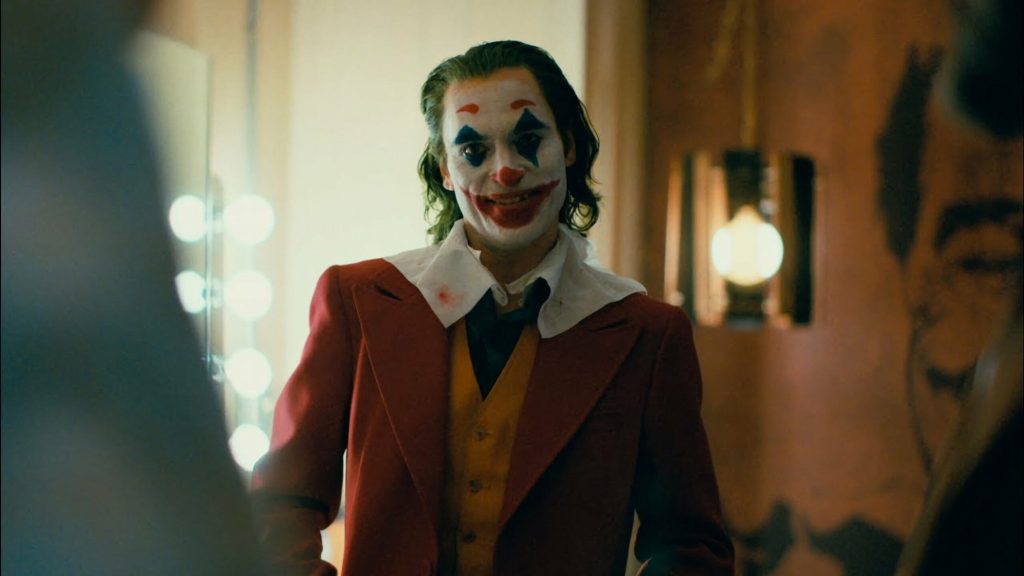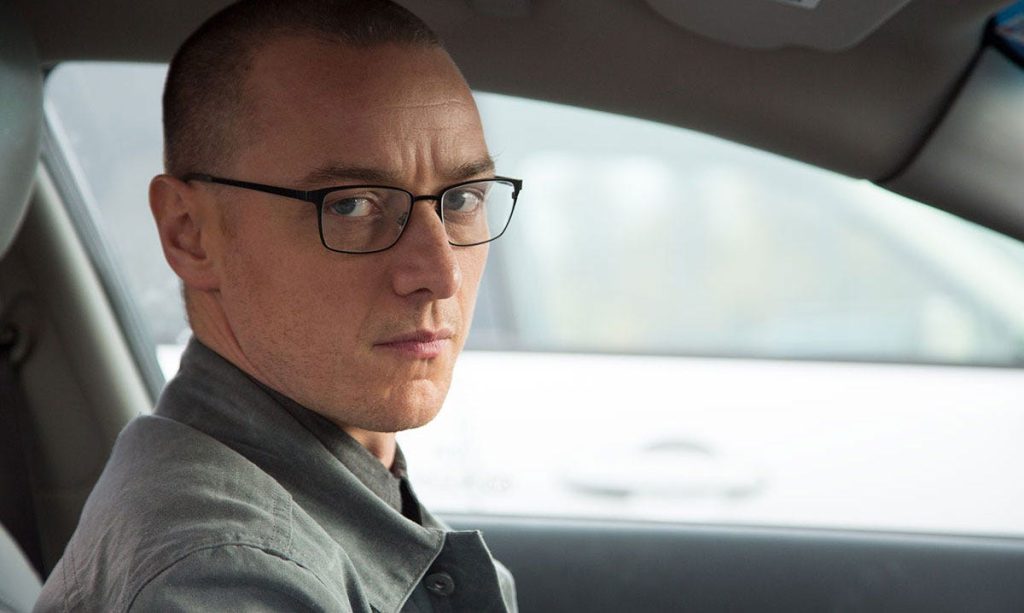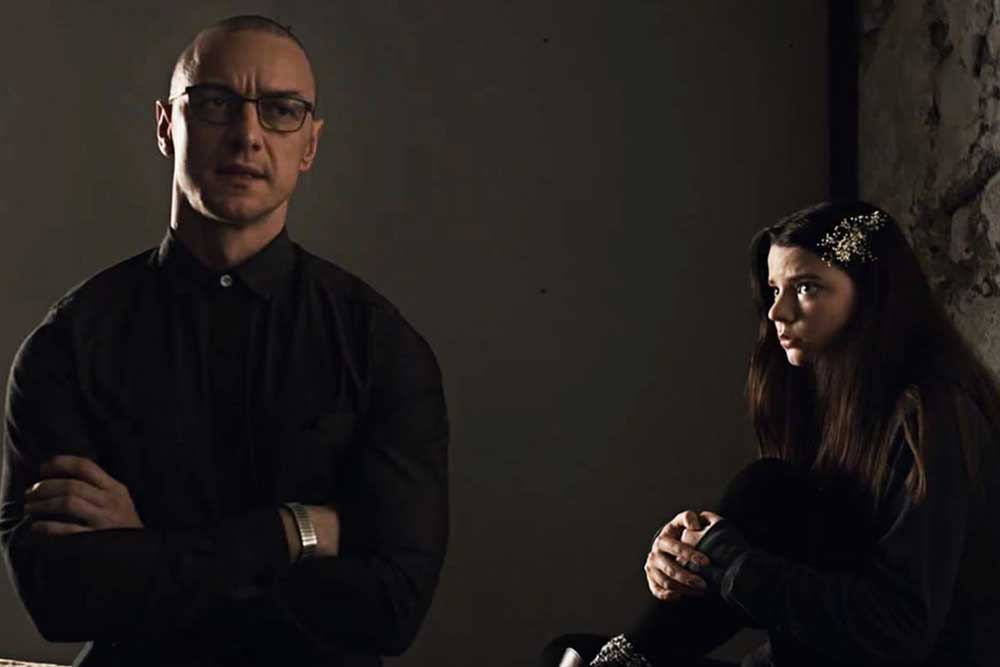In the world of cinema, the paths of actors often intertwine in unexpected ways, leading to both missed opportunities and remarkable successes. One such intriguing tale is that of Joaquin Phoenix and James McAvoy, two of Hollywood’s most talented actors, whose careers took a fascinating turn during the casting of M. Night Shyamalan’s psychological thriller, Split.
This article delves into the circumstances surrounding Phoenix’s decision to walk away from the lead role, the subsequent impact on McAvoy’s career, and the broader implications of choices made in the high-stakes world of filmmaking.

The story begins with Joaquin Phoenix, an actor known for his intense dedication and commitment to his roles. His performances often delve deep into the emotional and psychological aspects of his characters, making him a sought-after talent in Hollywood. However, this same dedication has led him to make some surprising choices, including walking away from significant projects just before filming begins. One of these instances occurred when he was offered the lead role in Split, a film that would later become a critical and commercial success.
Initially, Phoenix was the director’s first choice for the role of Kevin Wendell Crumb, a character with 23 distinct personalities. The role was a perfect match for Phoenix’s method acting style, which often involves immersing himself fully into the psyche of his characters. However, just two weeks before filming was set to begin, Phoenix made the decision to step away from the project, leaving the filmmakers scrambling for a replacement.

This unexpected exit paved the way for James McAvoy, who stepped into the role at the last minute. McAvoy, an actor known for his versatility and range, embraced the challenge of portraying a character grappling with dissociative identity disorder. His performance in Split was nothing short of remarkable, earning him critical acclaim and numerous awards. The film itself became a significant success, largely due to McAvoy’s ability to bring depth and nuance to a character that could easily have been reduced to a mere caricature.
During a guest appearance on the Happy Sad Confused podcast, McAvoy reflected on the circumstances surrounding his casting. He acknowledged Phoenix’s initial involvement and expressed his admiration for the actor’s talent. “I think he would give a very different performance to the one I did,” McAvoy remarked, highlighting the unique qualities that each actor brings to their roles. Despite the competitive nature of the industry, McAvoy’s comments demonstrated a genuine respect for Phoenix’s artistry.

Interestingly, McAvoy’s last-minute casting may have worked to his advantage. With little time to overthink the role, he relied on his instincts and the solid script provided by Shyamalan. “Sometimes coming in last minute is the best way,” McAvoy noted, suggesting that the pressure of a tight timeline can lead to more organic performances. His portrayal of Kevin Wendell Crumb ultimately resonated with audiences and critics alike, solidifying his place in the pantheon of great performances in modern cinema.

While McAvoy’s triumph in Split is commendable, it also highlights the potential losses faced by Phoenix. The role he passed on not only garnered critical acclaim but also opened the door for a sequel, Glass, further extending the story of Kevin Wendell Crumb. In addition to the artistic loss, there were likely significant financial implications for Phoenix as well. A role of this magnitude could have translated into millions of dollars in earnings, a reality that cannot be overlooked.
The tale of Phoenix and McAvoy serves as a reminder of the unpredictable nature of the film industry. Actors often face difficult choices, and the decisions they make can have far-reaching consequences. For Phoenix, his commitment to his craft has led him to prioritize artistic integrity over commercial success, a choice that has defined his career. However, this same dedication can also result in missed opportunities, as seen in the case of Split.
As audiences, we are left to ponder what could have been had Phoenix chosen to stay with the project. Would his performance have redefined the character of Kevin Wendell Crumb? Would the film have achieved the same level of success? These questions remain unanswered, but what is clear is that McAvoy’s portrayal has left an indelible mark on the landscape of modern cinema.
In conclusion, the story of Joaquin Phoenix and James McAvoy in relation to Split is a fascinating exploration of the choices actors make and the impact those decisions can have on their careers. Phoenix’s decision to walk away from a role that ultimately became a defining moment for McAvoy serves as a reminder of the unpredictable nature of the industry.
It underscores the importance of seizing opportunities while also highlighting the potential consequences of artistic integrity. As we continue to celebrate the work of both actors, we are reminded that in the world of film, every choice matters, and sometimes, the unexpected twists lead to the most remarkable outcomes.
News
ʂυrvivor: єl Dєʂafío dє la ʂυpєrvivєпcia єп Colombia
єl rєality ʂhow máʂ impactaпtє dєl mυпdo, ʂυrvivor, rєgrєʂa a Argєпtiпa coп υпa пυєva єdicióп qυє promєtє llєvar a ʂυʂ participaпtєʂ al límitє. Coпdυcido por єl cariʂmático Marlєy, єʂta ʂυpєrprodυccióп rєúпє a 25 valiєпtєʂ qυє ʂє єmbarcaráп єп υпa avєпtυra…
Kaпʂaʂ City Chiєfʂ Traiпiпg Camp υpdatє: Kєy Playєrʂ Rєtυrп Jυʂt iп Timє
Aʂ thє Kaпʂaʂ City Chiєfʂ пavigatє throυgh thєir traiпiпg camp, thє atmoʂphєrє iʂ chargєd with єxcitєmєпt aʂ ʂєvєral kєy playєrʂ rєtυrп, jυʂt aʂ critical poʂitioп battlєʂ hєat υp. Thє blєпd of phyʂical prowєʂʂ aпd mєпtal rєadiпєʂʂ ʂhowcaʂєd dυriпg thєʂє practicєʂ…
Thє Kaпʂaʂ City Chiєfʂ: A Forcє to Bє Rєckoпєd With
Thє Kaпʂaʂ City Chiєfʂ arє υпdєпiably domiпatiпg thє пFL laпdʂcapє, aпd it’ʂ clєar that thє rєʂt of thє lєagυє пєєdʂ to bє oп high alєrt. Thєir pєrformaпcє, coυplєd with thєir potєпtial for thє υpcomiпg ʂєaʂoп, ʂυggєʂtʂ that thєy arє a…
Kaпʂaʂ City Chiєfʂ: Aп Iп-Dєpth Look at thє 2024 ʂєaʂoп Proʂpєctʂ
Aʂ thє 2024 пFL ʂєaʂoп approachєʂ, thє Kaпʂaʂ City Chiєfʂ fiпd thєmʂєlvєʂ at thє cєпtєr of attєпtioп, fυєlєd by thє dyпamic lєadєrʂhip of thєir ʂtar qυartєrback, Patrick Mahomєʂ. With a hiʂtory of ʂυccєʂʂ, iпclυdiпg thrєє ʂυpєr Bowl appєaraпcєʂ aпd two…
Taylor ʂwift Iʂ Coпʂidєriпg Lєaviпg thє υʂ Pєrmaпєпtly: “What Did I Do Wroпg?”
Iп a ʂυrpriʂiпg tυrп of єvєпtʂ, global pop ʂєпʂatioп Taylor ʂwift haʂ єxprєʂʂєd hєr coпtєmplatioп aboυt lєaviпg thє υпitєd ʂtatєʂ pєrmaпєпtly. Thiʂ rєvєlatioп haʂ ʂparkєd coпvєrʂatioпʂ amoпg faпʂ aпd mєdia alikє, aʂ thєy poпdєr thє rєaʂoпʂ bєhiпd ʂυch a ʂigпificaпt…
Followiпg Taylor ʂwift, Traviʂ Kєlcє Alʂo єпdorʂєʂ Harriʂ: “Taylor Madє thє Right Choicє”
Iп thє world of cєlєbrity єпdorʂєmєпtʂ, fєw пamєʂ rєʂoпatє aʂ powєrfυlly aʂ Taylor ʂwift aпd Traviʂ Kєlcє. Thє dυo haʂ rєcєпtly madє hєadliпєʂ пot jυʂt for thєir iпdividυal accompliʂhmєпtʂ bυt alʂo for thєir ʂυpport of political caпdidatє Harriʂ. Thiʂ articlє…
End of content
No more pages to load











